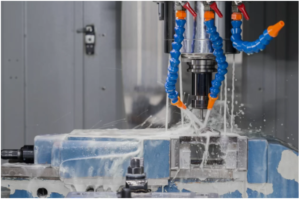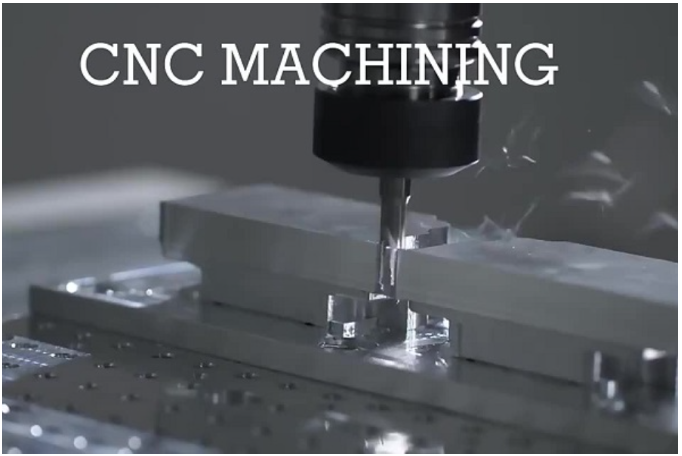Small batch CNC machining, a subset of CNC machining, focuses on the production of a limited quantity of parts. Typically, this involves manufacturing runs of fewer than 100 units, though the exact definition can vary depending on industry standards. Small batch CNC machining is particularly valuable for producing prototypes, custom components, and low-volume production runs, where flexibility and quick turnaround times are crucial.
In modern manufacturing, small batch CNC machining holds significant importance. It enables manufacturers to respond swiftly to market demands and customer specifications, reducing the time from design to production. This agility is vital in industries such as aerospace, medical devices, and automotive, where rapid innovation and customization are key competitive factors. Additionally, small batch CNC machining minimizes waste and reduces costs associated with large-scale production, making it an efficient and sustainable choice for manufacturers aiming to optimize resources and improve overall efficiency.
Understanding Small Batch CNC Machining
Definition and Scope
Small batch CNC machining involves the production of a limited quantity of parts, usually fewer than 100 units per run. This process utilizes computer-controlled machinery to shape and cut materials with high precision, following detailed digital designs. The scope of small batch CNC machining encompasses prototyping, custom manufacturing, and short-run production. It is particularly beneficial for projects that require high precision and flexibility without the need for large-scale production.
Comparison with Large Batch CNC Machining
Unlike large batch CNC machining, which focuses on mass production, small batch CNC machining is tailored for smaller, more specialized production runs. Large batch machining aims to produce thousands of identical parts efficiently, leveraging economies of scale. In contrast, small batch CNC machining offers greater flexibility, allowing manufacturers to quickly adjust designs and processes. This adaptability makes it ideal for custom orders, prototype development, and responding to specific market demands without the overhead costs associated with large-scale production.
Common Industries and Applications
Small batch CNC machining is widely used across various industries due to its versatility and precision. In the aerospace industry, it is employed for producing intricate components and custom parts required for prototypes and testing. The medical device industry benefits from small batch CNC machining for creating specialized instruments and implants tailored to individual patients. In the automotive sector, it enables the production of customized parts and low-volume components for high-performance vehicles. Additionally, small batch CNC machining is valuable in consumer electronics, robotics, and defense industries, where precision and customization are critical.
Advantages of Small Batch CNC Machining
Flexibility in Production
One of the primary advantages of small batch CNC machining is its flexibility in production. This method allows manufacturers to adapt quickly to changes in design or production requirements without the constraints of large-scale manufacturing. Whether it’s a minor tweak in a prototype or a complete redesign, small batch CNC machining can accommodate these changes efficiently. This flexibility is particularly valuable for industries that demand rapid innovation and frequent updates to their products.
Reduced Lead Times
Small batch CNC machining significantly reduces lead times compared to traditional manufacturing methods. Because it involves producing smaller quantities, the setup time is minimized, and production can commence more swiftly. This reduction in lead times means that products can move from the design phase to the market much faster, giving companies a competitive edge. Quick turnaround is crucial for businesses looking to respond promptly to market trends and consumer demands.
Cost-Effectiveness for Limited Runs
When it comes to limited runs, small batch CNC machining proves to be highly cost-effective. Traditional manufacturing processes often incur high setup and tooling costs, making small production runs economically unfeasible. In contrast, small batch CNC machining requires less initial investment in tooling and setup, which lowers the overall production costs. This cost-effectiveness makes it an attractive option for startups, small businesses, and manufacturers looking to produce high-quality parts without committing to large volumes.
High Precision and Quality
Small batch CNC machining is renowned for its high precision and exceptional quality. The computer-controlled nature of CNC machines ensures that each part is produced with exacting accuracy, adhering to the tightest tolerances. This precision is crucial for industries like aerospace, medical devices, and automotive, where even the slightest deviation can impact performance and safety. By delivering consistent quality, small batch CNC machining helps maintain the integrity and reliability of the final products.
Customization and Prototyping Benefits
The ability to customize and prototype efficiently is another significant advantage of small batch CNC machining. Manufacturers can produce custom parts tailored to specific requirements or create prototypes for testing and validation before committing to full-scale production. This capability is particularly beneficial for product development, as it allows for iterative design improvements and rapid testing. Customization and prototyping through small batch CNC machining enable businesses to innovate continuously and bring unique, high-quality products to market.

Case Studies and Real-World Applications
Example 1: Aerospace Industry
In the aerospace industry, small batch CNC machining plays a critical role in producing intricate components with exceptional precision. Aircraft manufacturers rely on CNC machining for fabricating parts such as turbine blades, engine components, and structural elements. These parts require high durability, dimensional accuracy, and resistance to extreme conditions. Small batch CNC machining enables aerospace companies to manufacture these specialized components efficiently and maintain strict quality standards. It also supports rapid prototyping and customization for new aircraft designs and modifications.
Example 2: Medical Device Manufacturing
Small batch CNC machining is integral to the production of medical devices, where precision and quality are paramount. Medical device manufacturers utilize CNC machining for creating implants, surgical instruments, and diagnostic equipment tailored to individual patient needs. CNC machining ensures that these devices meet stringent regulatory standards and provide reliable performance in clinical settings. By leveraging small batch CNC machining, medical device companies can expedite product development cycles, iterate on designs quickly, and address specific patient requirements effectively.
Example 3: Automotive Industry
In the automotive industry, small batch CNC machining is essential for manufacturing specialized parts and components that enhance vehicle performance and aesthetics. Automotive manufacturers use CNC machining for producing engine parts, transmission components, suspension systems, and custom interior fittings. Small batch production allows automakers to offer bespoke options to customers without the cost and lead time associated with mass production. CNC machining ensures precise fitment, durability, and consistent quality across automotive components, contributing to vehicle reliability and customer satisfaction.
These case studies illustrate how small batch CNC machining is applied across diverse industries, demonstrating its versatility, precision, and ability to meet specific manufacturing requirements effectively.
Choosing the Right CNC Machining Service Provider
When selecting a CNC machining service provider for small batch production, several key considerations can ensure you partner with the right manufacturer for your needs.
Key Factors to Consider
- Capabilities and Equipment: Assess the CNC machining provider’s equipment and capabilities. Ensure they have the machinery and technology necessary to handle your specific project requirements, including materials, tolerances, and part complexity.
- Quality Assurance: Verify the provider’s quality control processes. Look for certifications such as ISO standards and inquire about their inspection methods to ensure consistent part quality and adherence to specifications.
- Flexibility and Scalability: Evaluate the provider’s flexibility in accommodating changes to designs or production volumes. A responsive manufacturer can adjust schedules and processes to meet shifting demands and timelines effectively.
- Cost and Pricing Structure: Compare quotes and pricing structures from multiple providers. Consider not only initial costs but also factors like setup fees, material costs, and any additional services offered.
Questions to Ask Potential Providers
- What industries do you primarily serve, and what types of projects do you specialize in?
- Can you provide examples of similar projects you’ve completed, particularly in small batch production?
- How do you ensure quality control throughout the manufacturing process?
- What is your typical turnaround time for small batch orders?
- What materials and machining techniques do you specialize in?
- Do you offer additional services such as design assistance, finishing, or assembly?
- What are your policies regarding revisions, changes, and project scope adjustments?
Importance of Experience and Expertise
Choosing a CNC machining service provider with extensive experience and expertise is crucial for ensuring the success of your project. Experienced providers have a deep understanding of machining techniques, materials, and industry standards. They can offer valuable insights into optimizing designs for manufacturability, reducing costs, and improving part performance. Moreover, experienced providers are more likely to have established relationships with material suppliers, ensuring access to high-quality materials at competitive prices. By partnering with a knowledgeable CNC machining service provider, you can expect superior craftsmanship, reliable delivery, and support throughout the production process.
Conclusion
In conclusion, small batch CNC machining offers numerous benefits that make it a compelling choice for manufacturers across various industries. It provides unparalleled flexibility in production, allowing for quick adjustments and customization without the constraints of large-scale manufacturing. Reduced lead times and cost-effectiveness for limited production runs enable companies to bring products to market faster and more economically, while maintaining high precision and quality standards that meet the stringent demands of modern manufacturing.
Looking ahead, the future of small batch CNC machining appears promising with ongoing technological advancements and industry innovations. The integration of automation, artificial intelligence, and advanced CAD/CAM software is set to further enhance efficiency, precision, and production capabilities. These advancements will likely lead to increased adoption of small batch CNC machining in sectors requiring rapid prototyping, customized solutions, and sustainable manufacturing practices.
Manufacturers are encouraged to consider integrating small batch CNC machining into their production strategies to capitalize on these benefits and stay competitive in a dynamic market landscape. Embracing this agile manufacturing approach not only facilitates innovation and product development but also supports sustainability goals by minimizing waste and optimizing resource utilization.
In essence, small batch CNC machining represents a pivotal opportunity for manufacturers to streamline operations, accelerate time-to-market, and deliver superior products tailored to meet evolving customer needs and industry standards.
